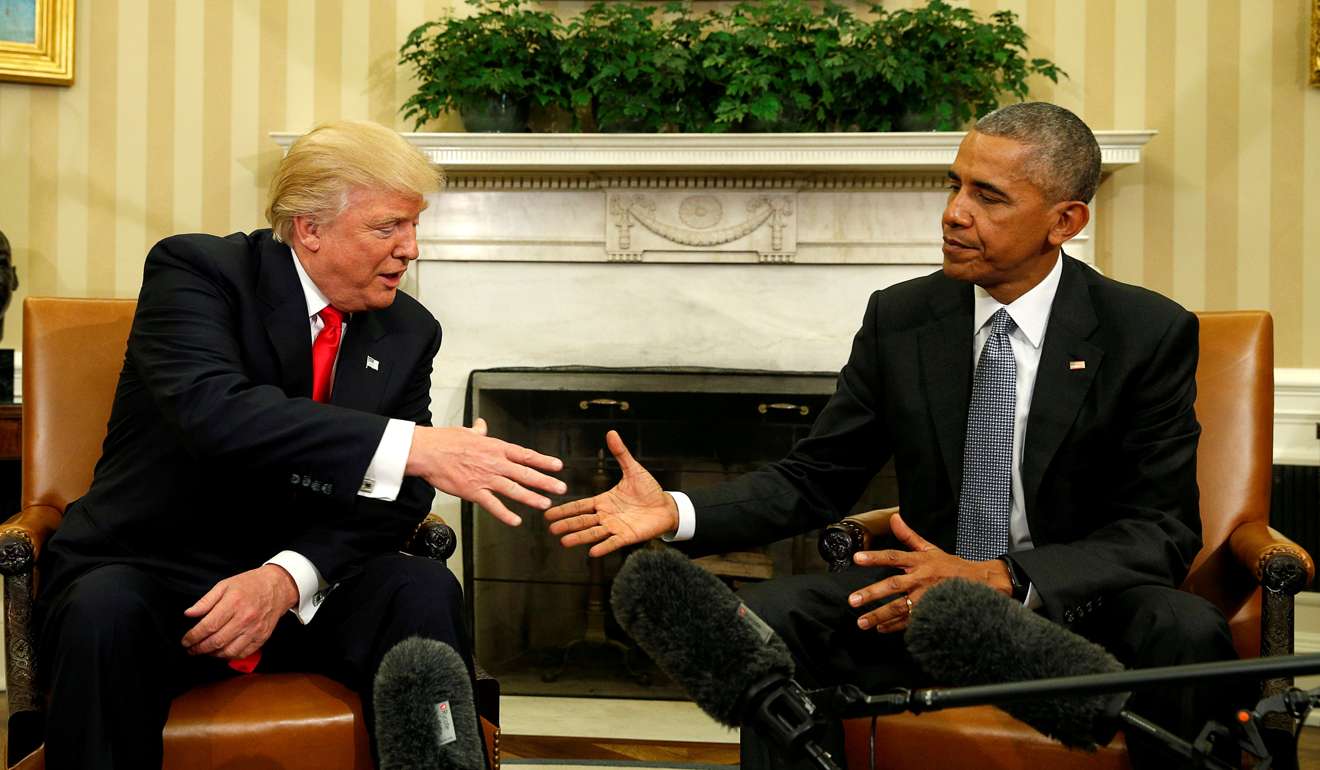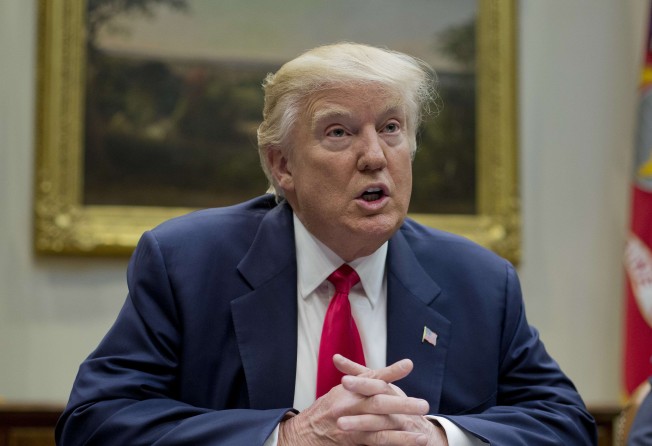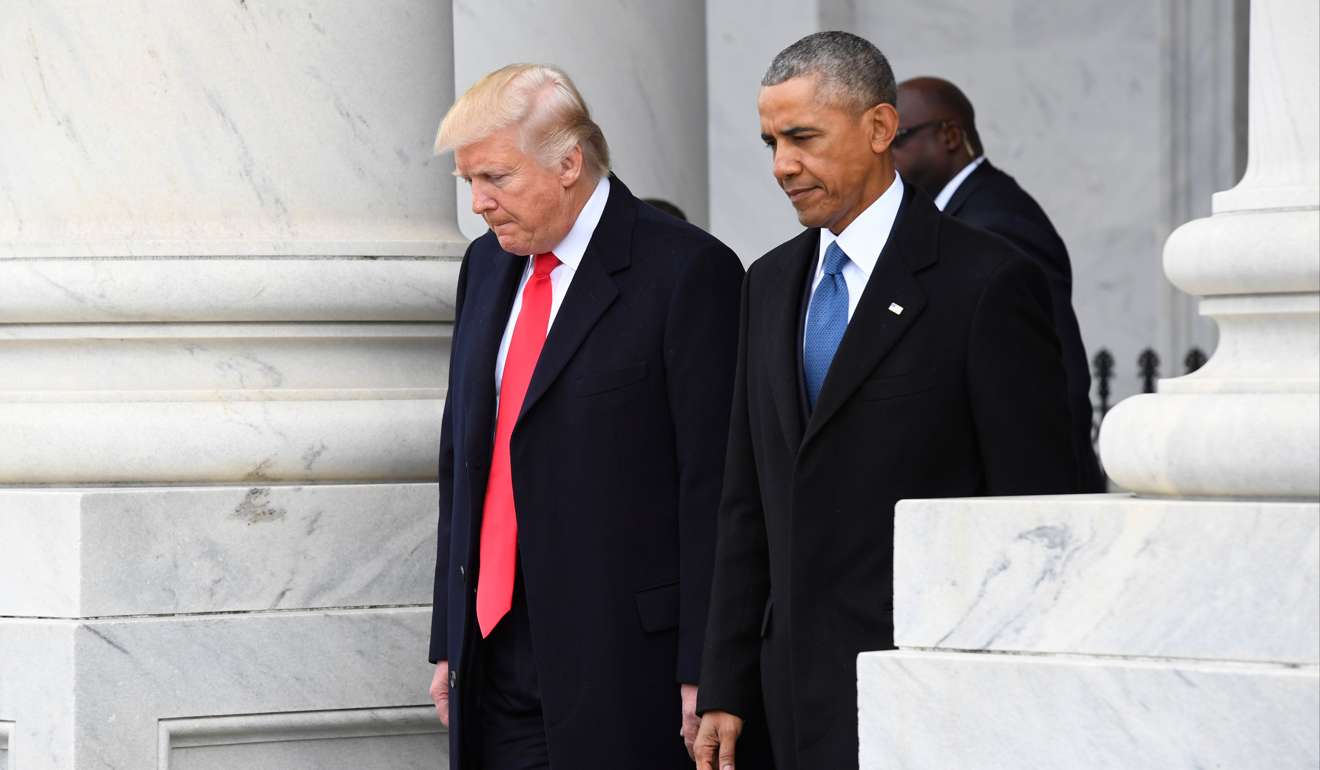
How hard is it to get an intelligence wiretap in the United States? Very hard

Wiretaps on Americans in foreign intelligence investigations are not easy to obtain. And if the subject is a candidate for president, it is even harder to get.
That’s the experience of current and former senior US officials who expressed disbelief at President Donald Trump’s accusation – levelled without any evidence – that then-president Barack Obama had him wiretapped at Trump Tower before the November election.
Senior officials, who spoke on the condition of anonymity because such matters are classified, said that there had been no wiretap on Trump.
Under the law governing foreign intelligence surveillance inside the US, an FBI agent would need to show a federal judge there is probable cause the target is an “agent of a foreign power” – and that requires more than just talking to the Russian ambassador.
“Both criminal and foreign intelligence wiretaps have onerous and strict processes of approval that require not only multiple levels of internal Justice Department review, but also require court review and approval,” said Matthew Waxman, an expert on national security law at Columbia University.
The law authorising wiretaps in terrorism and espionage cases is known as the Foreign Intelligence Surveillance Act (Fisa) of 1978, passed out of reforms recommended by the Church Committee in the wake of spying abuses by the FBI and the NSA.

The law bars targeted electronic surveillance on US soil unless the government can show that the target was a foreign power or an agent of a foreign power, and that the “facility” – the phone number or email address in question – is being used by the foreign power or agent.
The law authorising criminal intercepts – in cases such as murder, drug dealing or racketeering – is Title III of the Omnibus Crime Control and Safe Streets Act of 1968. Like Fisa, the law requires probable cause to be shown – but, in this instance, that the target is about to or has committed a crime.
Following the revelations of widespread NSA surveillance by former intelligence contractor Edward Snowden, Congress in 2015 created an amicus curiae, or public advocate, whom the judge can ask to weigh in on significant interpretations of Fisa.
Fisa orders rarely are rejected, in part because lawyers will withdraw or amend an order if a judge signals it will not pass muster. Once approved, the order is served on the phone or internet company that handles the number or email address in question.

On average, in recent years, there have been about 1,400 to 2,300 Fisa orders a year.
In a typical counter-intelligence investigation, if an agent is trying to figure out a target’s network, conversations – even those that might appear innocuous at first – are more likely to be considered relevant. Thus the minimisation rules for national security wiretaps are more lenient than those for criminal wiretaps because spies and terrorists generally use more sophisticated trade craft to evade surveillance.
The communications of people who are speaking to the target are termed “incidental”. The FBI, for instance, routinely wiretaps the foreign embassies of major adversaries such as China and Russia – including intercepting the mobile telephone conversations of senior diplomats. Anyone speaking to any of these targets would have their conversations picked up as incidental collection.
It is possible, some former officials said, that there may be recordings of phone conversations between someone in Trump Tower and a Russian official or officials. If so, the most likely explanation is that the surveillance was being conducted on the Russian officials.Those talking to the target would have had their conversations picked up as incidental collection.